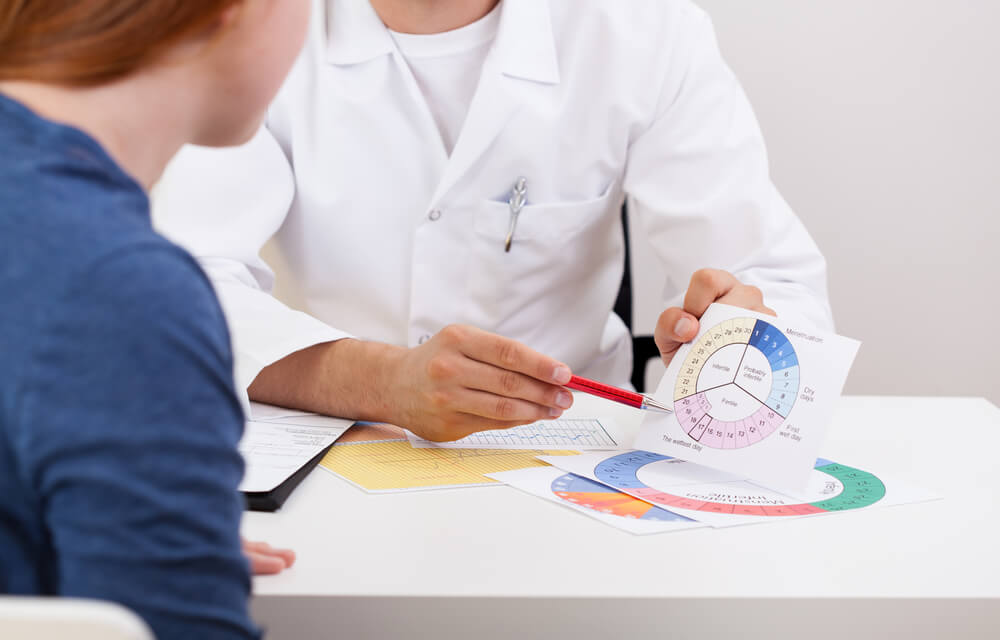Disclaimer: Please note that this blog is for educational purposes only, it includes general information on health-related topics. Women’s Healthcare of Boca Raton is giving medical advice to Patients Only. Follow this link to request an appointment with Dr. Ellman.
When you started taking birth control, you might have noticed a few subtle changes to your body over time. Depending on how long you’ve been taking it, these changes may vary. Now, you may be in a time of your life that you’re wondering what happens when you stop taking birth control. The side effects of stopping the pill after prolonged use are multifaceted. Meaning, there is not just one thing that happens to your body but many things. If you’re looking for answers to how long does birth control pills stay in your system and other burning questions regarding post-birth control syndrome, OBGYN Services in Boca Raton has the answer for you.
Coming off Birth Control

In previous postings, we’ve discussed birth control in great detail. Let’s talk about what happens when you are ready to make a change. It just makes sense that changes to your body will take place when you begin taking birth control and when you decide to stop. The birth control options that are hormone-based like pills, patches, vaginal rings, hormonal IUDs, injections, or implanted rods. These options will certainly change the way you feel once you stop using them. It’s important to note that everyone’s body is different so your changes may not be the same as changes experienced by others. However, there are some changes that are pretty consistent with most women that stop:
- Pregnancy – This one’s pretty obvious and certainly true for all women. There is an increased risk of getting pregnant if you stop using birth control. And it can happen faster than you realize depending on the form of birth control! In fact, almost 96 percent of women who used to use pills as a form of birth control are pregnant within one year after stopping. Those who’ve used DepoVera may take longer to get pregnant.
- Cycle – When you started birth control, you may have noticed subtle or drastic changes to your cycle each month. You may have started later or have experienced long periods. When you stop birth control, you may experience these same cycle changes. Even if your cycle was consistent, it may take a few months for your body to adjust again. For those of you that had irregular periods, you may experience an adjustment phase as well. If your periods stopped, it may take a few months for it to start up again. Additionally, your periods may become heavier and more uncomfortable. If it was this way before you started the birth control, it may return to this state.
- PMS – Usually, birth control helps with PMS or premenstrual syndrome. The hormones help your body level out these symptoms of depression, anxiety, and irritability. When you stop taking them, you may feel a little off again. You may also experience more vaginal discharge or cramping during ovulation. Since hormonal birth control works by ensuring that your body is not ovulating, you’ll feel the pain of this process starting up again.
- Weight – Those of you who have been using birth control methods that contain progestin, you ‘ll more than likely experience weight loss. It’s not clear whether patches, vaginal rings, or combo pills impact weight gain.
- Cosmetic – Sometimes, hormonal birth control options help with acne breakouts and prevent hair from growing where you don’t want it too. However, when you stop taking them, acne and hair return with a vengeance. This will throw your hormones off again and bring back those issues.
- Headaches – If you had headaches when you were taking birth control, you will experience relief when you stop.
- Prevention – By using certain types of birth control, you may have protection from certain types of cancers like ovarian and endometrial cancers. You’ll also be protected from non-cancerous breast issues like fibroids and fibrocystic breast disease. Depending on how long you take it, you will continue to reap the benefits. This is one of the best side effects of stopping birth control.
- Frisky – You may be feeling a little friskier when you stop taking birth control. This is because your libido might have been decreased while taking it. About 15% of women will find themselves being in the mood a lot more often after they quit birth control.
What Is Post-Birth Control Syndrome
Post-birth control syndrome can be defined as a set of symptoms that lasts between four to six months after discontinuing birth control. These symptoms are typical of someone who has been using a hormonal contraceptive like pills, implants, IUDs, and vaginal rings. It is caused by the withdrawal of these synthetic hormones forcing your body to return back to its natural hormonal state. So any hormonal issues you may have experienced prior to taking them will return. Many of the symptoms that are listed above are part of post-birth control syndrome. However, you can also experience fertility issues, hair loss, digestive issues, and mood disorders.
Reasons to Stop Taking Birth Control

Every woman has their own reasoning for quitting birth control. Maybe you want to conceive or you just may not like the way the birth control makes you feel. You may have tried to take it with the intention of solving skin or other hormonal-related issues and it was ineffective. Maybe the birth control encouraged other unplanned and uncomfortable side effects like stomach problems or frequent headaches.
However, cleansing your body of birth control is completely unnecessary if you’re looking to conceive. For injection options like Depo Provera, it’s best to stop receiving injections one year before you want to get pregnant. If you’re wondering how to get Depo Provera out of your system faster, you can take advantage of a 28 day cleanse that will reset your system, flush your liver, help balance your hormones, and restore your body’s natural balance. So, how long does birth control pills stay in your system? Well, it depends since everyone’s body is different. For some women, this process takes a couple of weeks and for others, it may take a few months for the body to get back to its state of normalcy. Your fertility is determined by your ovulation cycle. Basically, no ovulation, no fertility. And fertility does not equal pregnancy. Meaning, that just because you’ve started ovulating doesn’t necessarily mean you will get pregnant right away.
Schedule an Appointment Today
We offer a variety of comprehensive services for women just like you! Whether you’ve made the decision to stop taking birth control or you’re exploring new birth control options, we can answer any questions you may have on your health journey. Feel free to discuss any post-birth control syndrome symptoms with us so that we can give you the care you need. Our personalized and compassionate approach to providing exceptional medical care contributes to our strong and trusting relationships with our patients and other physicians as well. We are committed to providing high-quality gynecological care in a friendly, caring office. We treat the whole patient by gathering all facts to create tailored approaches to helping you feel your best. Don’t wait any longer! Schedule your appointment today!

Dr. Ellman is a Board Certified OBGYN who established his medical practice in South Florida over 25 years ago. His office, Women’s Healthcare of Boca Raton, is located in Boca Raton, Florida at West Boca Medical Center. Dr. Ellman attended Albert Einstein College of Medicine of Yeshiva University, where he received his medical degree. He went on to intern at Beth Israel Hospital in Boston- an affiliate of Harvard Medical School- and continued his residency at North Shore University Hospital in Manhasset, New York- an affiliate of Cornell Medical School.
Dr. Ellman has practiced Obstetrics and Gynecology in the Boca Raton area since 1995. In addition to treating patients at West Boca Hospital, Dr. Ellman also treats patients through his own private practice, Women’s Healthcare of Boca Raton, located on the West Boca Medical Campus.

